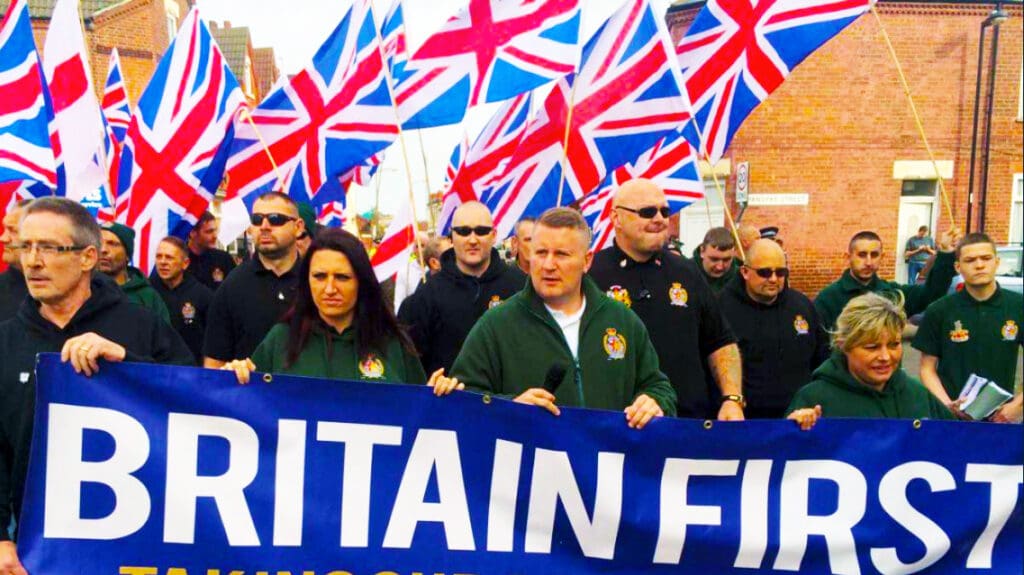hate speech
Blog
From Blaming China to Attacking Domestic Elites: The Evolution of Hate Speech in a Telegram Channel during the COVID-19 Pandemic
April 19, 2023By Matteo Vergani, Alfonso Arranz, Ryan Scrivens, and Liliana Orellana Prior research has found that the COVID-19 pandemic triggered a wave of online hate speech against targets such as Asian and Jewish minorities, as well as an increase in conspiracy theories circulating online. We contribute to this growing body of research with new evidence from ...
Blog
The Use of Heuristics in the Buffalo Shooter’s Manifesto
March 15, 2023By Michael Waltman The purpose of this entry is to describe how the nature of hate speech contributes to violence and extremism in a way that would be helpful to those who would study and oppose violent extremism. I have studied the social and political uses of hate speech since 2003. Hate speech is discourse ...
Blog
Access Now Addresses the U.N. Security Council on Countering Hate Speech Online
December 15, 2021By Brett Solomon On October 28, 2021, before the United Nations Security Council, Access Now spoke on addressing and countering online hate speech and preventing incitement to discrimination, hostility, and violence on social media. The Security Council is the United Nations’ most powerful body, with “primary responsibility for the maintenance of international peace and security.” This ...
Blog
A Better Way to Regulate Online Hate Speech: Require Social Media Companies to Bear a Duty of Care to Users
September 22, 2021By Katharine Gelber Hate speech is proliferating online and governments, regulators and social media companies are struggling to keep pace with their efforts to combat it. In July 2021, the racist abuse of Black English football players on Facebook and Twitter has brought the issue to the forefront and shown how slow and ineffective the tech ...
Blog
The Effects of Censoring the Far-Right Online
July 15, 2020By Ofra Klein Since 2016, censorship of far-right groups and individuals on social media platforms has been the subject of much public discussion. With the implementation of laws to counter hateful speech, such as the German Network Enforcement Act (NetzDG) and the EU code of conduct, social media companies are now much more responsible for regulating ...
Blog
The Challenge of Drawing a Line between Objectionable Material and Freedom of Expression Online
June 26, 2019By Philippa Smith When it comes to debates about free speech that needs to be protected and hate speech that needs to be legislated, the idiom of “drawing the line” is constantly referenced by politicians, journalists and academics. It has surfaced again as New Zealanders struggle to comprehend the abhorrence of the Christchurch terror attack and ...
Blog
Germany’s Legal Crackdown on Social Media: Four Misconceptions Dispelled
July 25, 2018By Stefan Theil Germany’s infamous network enforcement law – which seeks to more heavily regulate social media – came into force at the start of 2018 to almost unanimous criticism. That is unfortunate, because I believe the law is a risk worth taking and can serve as a good starting point for governments considering tougher regulations ...
Blog
Tommy Robinson and the UK’s Post-EDL Far Right: How Extremists are Mobilising in Response to Online Restrictions and Developing a New ‘Victimisation’ Narrative
July 18, 2018By William Allchorn The 9th of June saw one of the most prominent far-right mobilisations of the year. Assembling in Trafalgar Square, hundreds of demonstrators turned out to protest the arrest and imprisonment of former English Defence League (EDL) leader, Tommy Robinson (real name Stephen Christopher Yaxley Lennon), for contempt of court after he broadcast live ...
Blog
What is Britain First? The Far-Right Group Retweeted by Donald Trump
December 6, 2017By Chris Allen Donald Trump’s decision to retweet a number of videos originally posted by Jayda Fransen – the deputy leader of the far-right street movement Britain First – was as unfounded as it was unexpected. Retweeted without additional comment, the three videos purported to show a group of Muslims pushing a boy off a ...
Blog
Self-regulation of Internet Intermediaries: Public Duty Versus Private Responsibility
November 8, 2017By Paul Bernal Internet intermediaries – the social media companies, search engines and internet service providers who supply ways for audiences to find and access online content – are under scrutiny regarding their crucial role in the flow of digital information. Google and Facebook attracted one fifth of global advertising spend in 2016, and concerns ...









